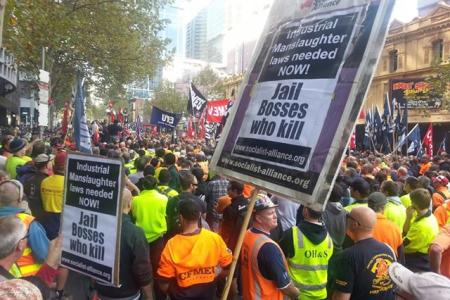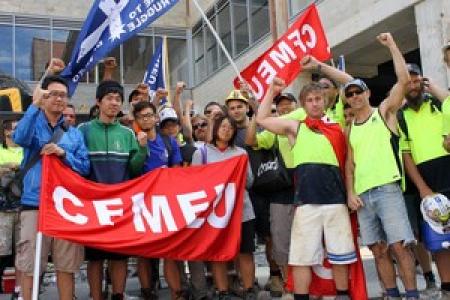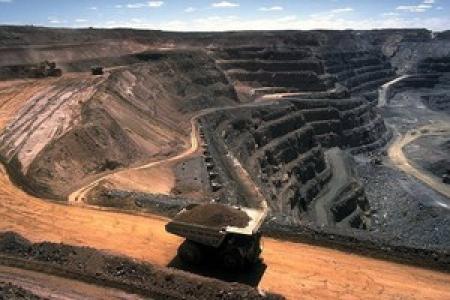Workers’ Rights and Industrial
Our wages, living conditions and democratic rights have been fought for and won over two centuries by working people, and their basic defence organisations, the trade unions.
Ford's announcement that it will close its last vehicle manufacturing plants in Australia - in Geelong and Broadmeadows - destroying the jobs of 1,200, is "totally despicable", said Sue Bull, the Socialist Alliance candidate for Corio.
The Socialist Alliance supports the work of sex worker organisations in their campaigns for decriminalisation, and for occupational health and safety.
For 20 years we have had employer-contributed compulsory superannuation (ECS), currently at the rate of 9% of gross income. This was “sold” as part of the social wage and as an expansion of the provision of enhanced retirement benefits for Australian workers beyond those then limited to public sector and management in the private sector.






